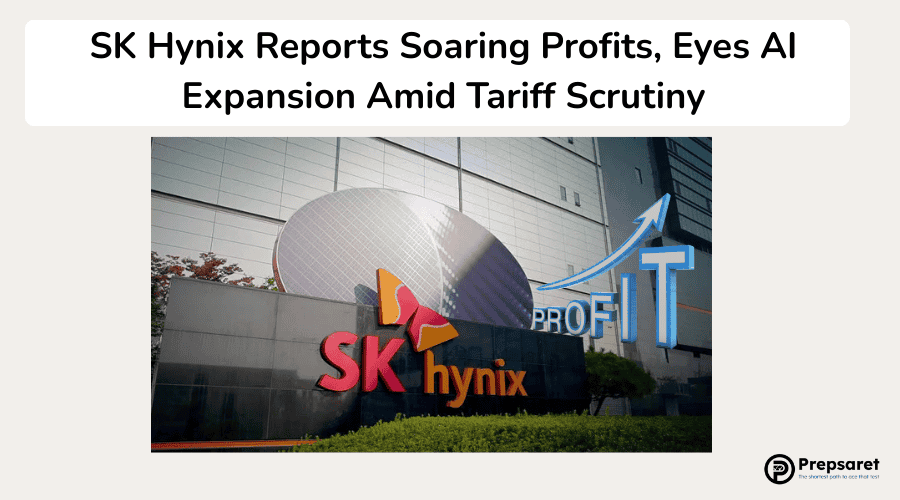Highlights:
- SK Hynix’s Q1 profit surged 158% year-over-year due to AI chip demand and stockpiling.
- U.S. tariff threats are expected to have minimal short-term impact on its AI chip sales.
- The company remains the top HBM chip supplier to Nvidia, outpacing Samsung.
- Analysts warn that demand could ease in the second half of 2025 due to early inventory buildup.
- STMicroelectronics reports stable customer sentiment despite tariff concerns.
South Korean chipmaker SK Hynix posted a major profit increase in the first quarter of 2025, driven by booming demand for artificial intelligence (AI) chips and precautionary stockpiling ahead of potential U.S. tariffs. Despite geopolitical uncertainties, the company forecasts steady growth in its AI-related sales.
Strong Financial Gains from AI Boom
SK Hynix recorded a 158% year-over-year jump in operating profit, reaching ₩7.4 trillion ($5.2 billion), well above analyst expectations. Revenue also climbed 42% to ₩17.6 trillion.
The growth was primarily fueled by surging demand for high-bandwidth memory (HBM) chips—key components in AI processing—and a global rush to stockpile chips in anticipation of trade policy shifts.
The company’s success marks a turning point in the global chip market, as it overtakes Samsung Electronics in DRAM market share and now controls about 70% of the HBM segment, securing its role as Nvidia’s main memory chip supplier.
Managing Tariff Risks and Future Demand
While the U.S. government continues to investigate semiconductor imports, citing national security concerns, SK Hynix downplayed the immediate threat to its AI business.
Kim Ki-tae, head of HBM sales and marketing, confirmed that 2025 sales plans remain unchanged and secured by prior contracts. The company also noted that most shipments go to non-U.S. destinations, reducing exposure to direct tariffs.
Still, industry analysts expressed caution. Ryu Young-ho of NH Investment & Securities noted that earlier-than-expected buying activity could lead to softened demand in the latter half of the year.
However, SK Hynix maintains that current demand trends do not indicate a significant inventory buildup.
Broader Industry Signals
The sentiment aligns with remarks from STMicroelectronics, whose CEO Jean-Marc Chery stated that they have not seen “any panic from customers” regarding tariffs. STMicro projects a moderate recovery in the second quarter after a weak Q1, signaling cautious optimism across the semiconductor industry.
Looking ahead, SK Hynix expects increased investment from big tech in AI infrastructure and smartphone manufacturers introducing more AI features—factors likely to sustain high demand for advanced memory chips.
As global chipmakers navigate shifting trade policies and evolving tech trends, SK Hynix appears well-positioned to lead the charge into the next phase of AI-driven growth.
Related News:

